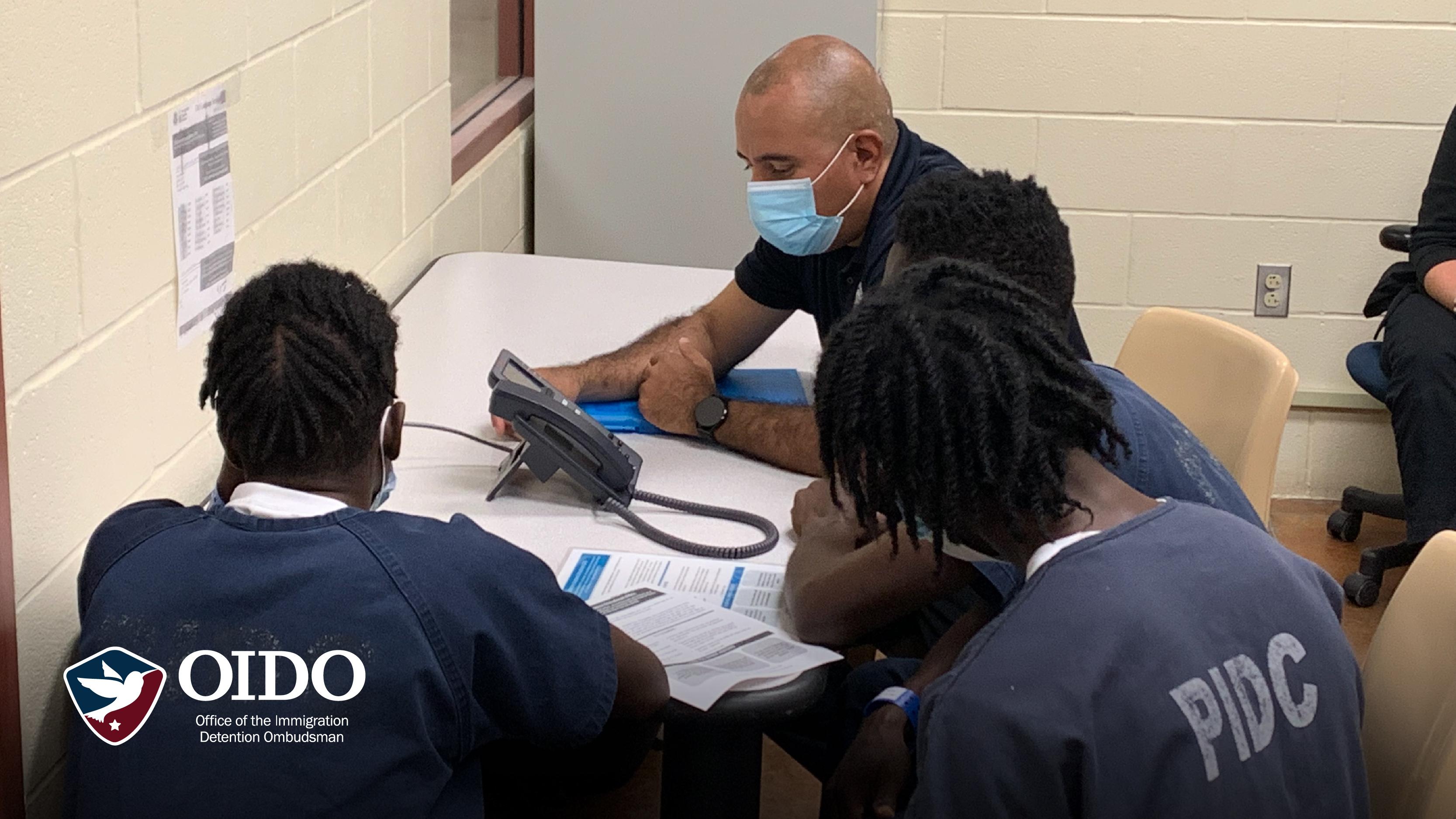 (NewsUSA)
(NewsUSA) - The Office of the Immigration Detention Ombudsman (OIDO) is a resource for advocates, legal representatives, and family members of detained individuals to file complaints about misconduct or poor living conditions in U.S. immigration detention and custody.
- The Office of the Immigration Detention Ombudsman (OIDO) is a resource for advocates, legal representatives, and family members of detained individuals to file complaints about misconduct or poor living conditions in U.S. immigration detention and custody.
The Office’s intake form, DHS Form 405, enables individuals who have been detained---or their representatives---to submit confidential claims about treatment and conditions in immigration detention facilities. This includes issues such as staff misconduct, inadequate medical treatment, poorly maintained bathrooms or rest areas, lack of access to counsel, or safety issues that could result in harm to detainees.
Created by Congress in 2019, OIDO is an independent office within the U.S. Department of Homeland Security (DHS)—separate from Immigration and Customs Enforcement (ICE) and Customs and Border Protection (CBP). The Office is charged with investigating complaints about treatment and conditions in U.S. detention facilities that hold individuals in federal immigration custody. OIDO also provides oversight to ensure facilities comply with the law and standards for immigration detention.
“Our mission involves assessing individual complaints, conducting announced and unannounced inspections, reviewing detention contracts, and carrying out studies and surveys on trends in immigration detention to report to the DHS Secretary, ICE, CBP, and Congress,” said acting Immigration Detention Ombudsman David Gersten. “Our unique role distinguishes OIDO as an important and objective conduit of information regarding immigration detention for policymakers and the public.”
A key objective for OIDO is accessibility, and this includes translating information and resources, including complaint forms, into multiple languages and making those resources readily available to detainees in facilities and the public online.
OIDO has established a persistent presence inside detention and custody settings. Case managers and detention oversight investigators who understand detention matters and can recommend solutions to complaints about detainee treatment and facility conditions regularly visit detention facilities. By having this independent oversight consistently present in ICE and CBP facilities, OIDO can be proactive and timely in helping to resolve detention issues.
“The staff of OIDO embody passion for and are trained in immigration, civil detention care and custody, and protecting the rights of individuals in immigration detention,” Gersten said. “We are committed to serving as a trusted and neutral resource for the community of detainees and their advocates as we collectively work to create a more safe and humane immigration detention system.”
OIDO has completed numerous observations and inspections of detention sites and facilities throughout the U.S., strengthening its capabilities and field perspective, spreading public awareness of its purpose and activities, and building a cooperative network of stakeholders.
While OIDO’s charge is broad, it does not have the authority to handle matters related to release, community supervision, alternatives to detention, immigration status, or claims for asylum. The results of an OIDO inspection do not affect the status of a detainee’s immigration case, either positively or negatively.
OIDO’s complaint process also is not meant to supersede or replace existing complaint processes used at detention facilities; rather, it is considered an additional line of support for advancing a complaint toward resolution and is designed to complement existing oversight functions within DHS.
While OIDO officials fulfill their role of independence and neutrality, they also recognize the benefits of partnering with ICE and CBP to ensure its recommendations for improving detention facility conditions are implemented as Congress intended. OIDO has team members working with CBP’s Joint Intake Center to review complaints filed regarding that agency to ensure responsiveness and impartiality. OIDO also coordinates with the DHS Office for Civil Rights and Civil Liberties, Office of Inspector General, and component Offices of Professional Responsibility to facilitate appropriate handling of matters within their respective areas of responsibility.
Looking forward, OIDO’s vision is to build awareness of and enhance its role as an accessible and responsive entity providing redress to individuals in immigration detention. This includes building and strengthening relationships with DHS component agencies as well as external partners, leveraging information and expertise to inform decision makers and the public, hiring additional oversight staff, and creating a workforce culture built on trust, transparency, and impact.
“Our goal for 2023 is to build on the substantial organizational growth we experienced in 2022, while fulfilling our role as an objective, independent watchdog and intermediary for complaints filed by immigration detainees,” Gersten said.
To learn more about OIDO or file a complaint, visit DHS.gov/OIDO.






